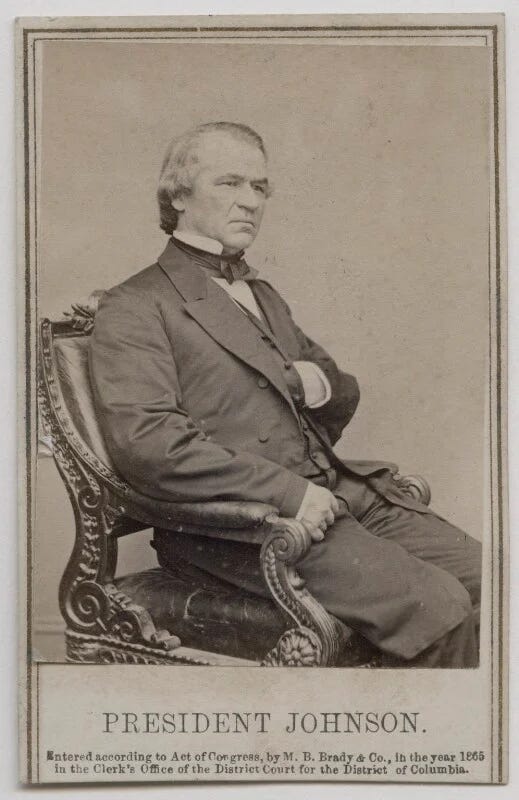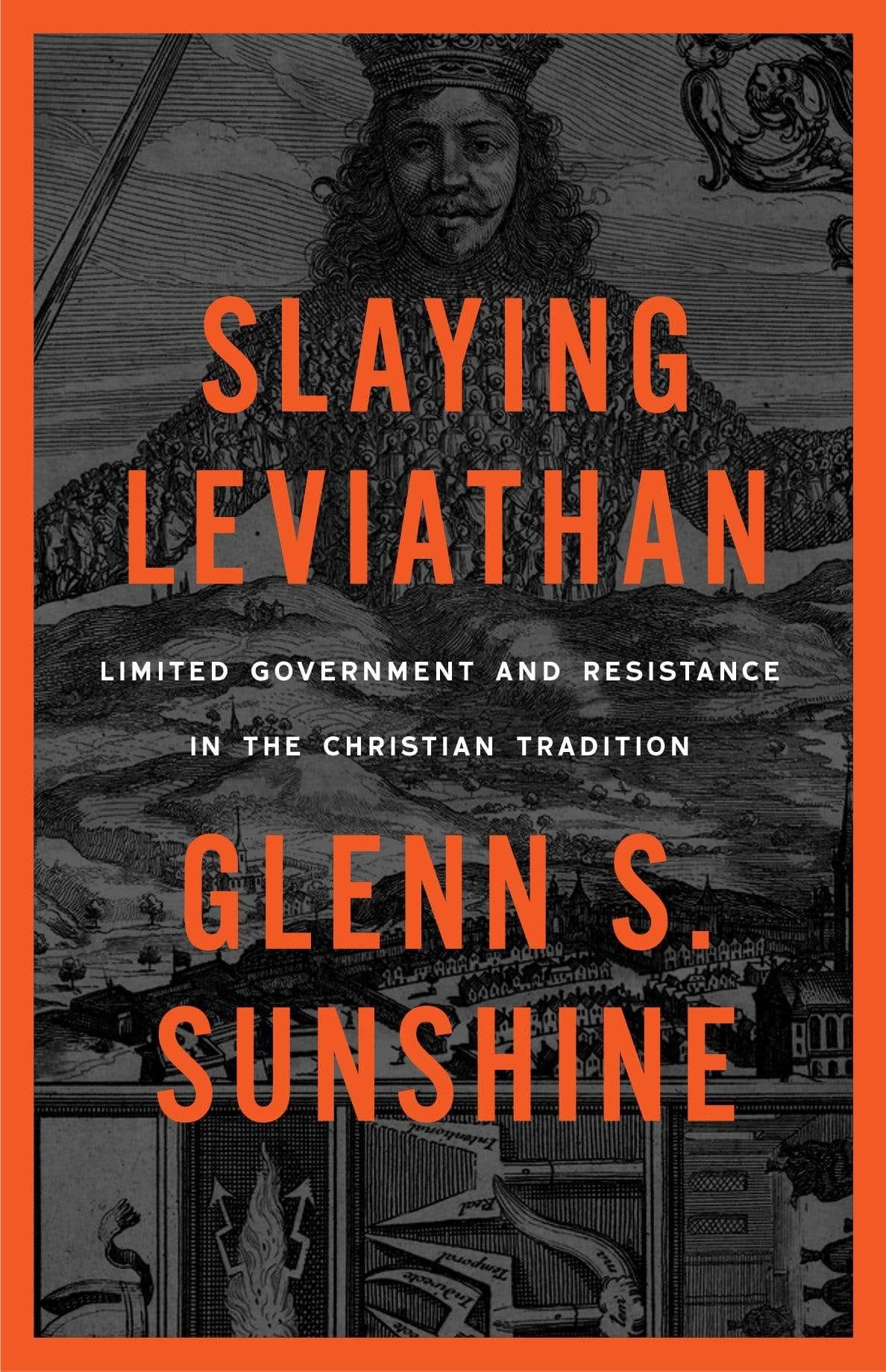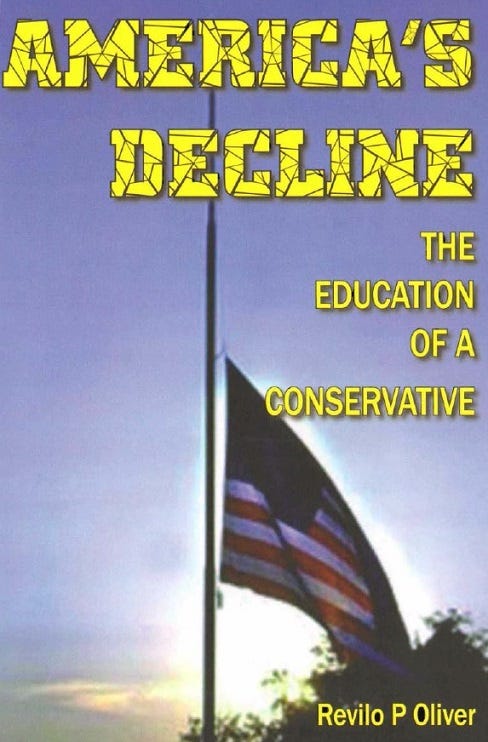“The consolidation of the states into one vast EMPIRE, sure to be aggressive abroad and despotic at home, will be the certain precursor of ruin which has overwhelmed all that preceded it.”
— General Robert Edward Lee
Related Entries
If a Conservative is a Liberal mugged by reality, as the famous quip goes, then a Reactionary is a Conservative mugged by reality.
My first introduction to politics was listening to Sean Hannity and talk radio with my Father, a simpler time before reality had mugged this young and eager conservative. Not content to merely be a spectator in the bloodsport of politics, the first political rally I attended was at the age of 15 during the contentious amnesty debates of 2006. Out of this movement grew the Tea Party, and I watched in real time as grifters, conmen, charlatans, & frauds continually steered well-intentioned Americans into political dead ends; a trend which has only increased in recent years. Despite my growing disillusionment with the American Empire upon my return from Afghanistan, my engagement with conservative and “right-leaning” politics continued. I still earnestly believed, despite observing a decade of the GOP’s utter fecklessness and abject lies, that the principles which were espoused by those within much of the movement were noble and just.
William F. Buckley Jr., one of the founders of the premier conservative publication of the 20th century, National Review, famously defined a conservative as:
someone who stands athwart history, yelling Stop, at a time when no one is inclined to do so, or to have much patience with those who so urge it.
On its face, this seems like a noble, if quixotic proposition. The preservation of one’s values is certainly an admirable impulse, one which naturally plays to the conservative’s inherent respect and admiration for tradition. But therein lies the deception: preservation for the sake of preservation is an empty ideological shell bereft of Truth.
— President Ronald Reagan (33°) displaying the Hidden Hand sign in his 84’ campaign literature.
Revilo P. Oliver, one of the co-founders of National Review, remains both controversial and emblematic of reactionary American politics. While his abrasive atheism detracts from my enjoyment of his incisive writings, his intellectual endeavour embodies the bitter truths I've long espoused on this publication regarding conservatism's veiled manipulations and hollow promises. Professor Oliver’s winding journey through the labyrinth of conservative politics reached a crescendo in 1966, unveiling an all too familiar tale of shattered promises and ideological bankruptcy (emphasis mine):
CONSERVATISM, when that word was first used in a political sense, strictly implied the maintenance of existing governmental and social institutions and their preservation from all undesirable innovation and substantial change. In Europe and the United States, however, the term has now acquired a quite different and linguistically improper meaning: it implies the restoration of political and social institutions that were radically changed and subverted to produce the governmental and social institutions that now exist.
Strictly speaking, therefore, 'conservatism' has come, paradoxically, to mean reaction, an effort to purge the nation's social and political organization of deleterious accretions and revolutionary changes imposed upon it in recent times, and to restore it to the pristine state in which it existed at some vaguely or precisely defined time in the past. The persons who now call themselves conservatives, if they mean what they propose, are really reactionaries, but eschew the more candid word as prejudicial in propaganda.
— Revilo P. Oliver, America’s Decline: The Education of a Conservative
Upon reading his story, I was shocked by how little had changed within conservative politics in the last 50+ years, and as I reflected on Professor Oliver's odyssey, I could not help but see a narrative of disillusionment that mirrored my own. Nostalgia for a bygone era had been harnessed and weaponized against us.
What the militant Christ-hater Oliver fails to understand is that modern conservatism’s fatal flaw lies not in its paradoxical nature alone — the flaw lies at its very foundations.
“Tradition is not the worship of ASHES, but the preservation of fire.”
— Gustav Mahler
Edmund Burke, the intellectual progenitor of conservatism, i.e. classical liberalism, trod a path woven between the worlds of both tradition and the enigmatic allegiances of Freemasonry. Born in 1729, he emerged as a prodigious intellect, intertwining his philosophical musings with the pragmatic politics of his revolutionary era. As a prolific writer, his treatises remain deeply influential within conservative thought.
In light of my growing political frustrations, I was forced to confront the words of Edmund Burke once again, this time with a critical eye. While Burke is championed as a herald of small government, there is a pernicious thread running through his writings that now leaps out at me:
All government, indeed every human benefit and enjoyment, every virtue, and every prudent act, is founded on compromise and barter.
— Edmund Burke, A Philosophical Enquiry into the Origin of Our Ideas of the Sublime and Beautiful
This is the fatal flaw of conservatism: it stands for nothing. There are immutable laws of Nature and its God, the LOGOS incarnate, that transcend mere mortal prescriptions; ones which can not, and will not, be altered. Augustine communicates this same idea throughout his monumental work, the City of God, emphasizing the distinction between the law of God and the law of Man (emphasis mine):
Accordingly, two cities have been formed by two loves: the earthly by the love of self, even to the contempt of God; the heavenly by the love of God, even to the contempt of self. The former, in a word, glories in itself, the latter in the Lord.
— Augustine of Hippo
The City of Man and its quest for earthly perfection is one that definitionally must glory in itself, and it is here where Burke and Scripture depart. In this way, the conservative ideology is not only at odds with Scripture, it is antithetical to it.
I find it ironic that a man that spoke highly of the American Revolution in his time would become the intellectual bedrock upon which secession is now looked upon with such derision. The American colonists viewed and argued that secession was a legal act precisely because the King was failing to live up to his legal and moral duty to punish evil doers, as prescribed in Romans 13:4. This is precisely the opposite of what Burke argues in his seminal political treatise (emphasis mine):
Society is indeed a contract. Subordinate contracts for objects of mere occasional interest may be dissolved at pleasure — but the state ought not to be considered as nothing better than a partnership agreement in a trade of pepper and coffee, calico or tobacco, or some other such low concern, to be taken up for a little temporary interest, and to be dissolved by the fancy of the parties. It is to be looked on with other reverence; because it is not a partnership in things subservient only to the gross animal existence of a temporary and perishable nature. It is a partnership in all science; a partnership in all art; a partnership in every virtue, and in all perfection.
— Edmund Burke, Reflections on the Revolution in France
If the law is mutable, if it can be changed at the whim of a man or the stroke of a pen, it can not be divine and is no more deserving of respect than any other contract or institution. If we are to suppose that, indeed, society is a contract, than it is incumbent upon both parties to adhere to the rules of said contract. According to Burke and his intellectually stunted progeny, this bedrock principle of contract law is no longer necessary when it comes to government for seemingly mystical and inscrutable reasons.
No matter how much Burke and his ilk seek to sow compromise in pursuit of mortal perfection, they will always reap defeat. This lament is captured no better than by the famed Confederate soldier, Robert L. Dabney (emphasis mine):
This is a party which never conserves anything. Its history has been that it demurs to each aggression of the progressive party, and aims to save its credit by a respectable amount of growling, but always acquiesces at last in the innovation. What was the resisted novelty of yesterday is to-day one of the accepted principles of conservatism; it is now conservative only in affecting to resist the next innovation, which will to-morrow be forced upon its timidity, and will be succeeded by some third revolution, to be denounced and then adopted in its turn. American conservatism is merely the shadow that follows Radicalism as it moves forward towards perdition. It remains behind it, but never retards it, and always advances near its leader. This pretended salt hath utterly lost its savor: wherewith shall it be salted? Its impotency is not hard, indeed, to explain. It is worthless because it is the conservatism of expediency only, and not of sturdy principle. It intends to risk nothing serious for the sake of the truth, and has no idea of being guilty of the folly of martyrdom. It always — when about to enter a protest — very blandly informs the wild beast whose path it essays to stop, that its “bark is worse than its bite,” and that it only means to save its manners by enacting its decent role of resistance. The only practical purpose which it now subserves in American politics is to give enough exercise to Radicalism to keep it “in wind,” and to prevent its becoming pursy and lazy from having nothing to whip…
— Women’s Rights Women, 1871
The term conservative itself is one entirely defensive in nature. By implication, conservation implies a lack of aggressive initiative. It is a term which, in the political sense, is inherently rooted in cravenly holding on to what one still has — not in retaking what has already been lost. When one’s society is untethered from the ultimate Lawgiver, any man made ideology is nothing more than a speed bump in the face of ever more depraved absurdities.
As Mr. Dabney will attest, the examples of such are seemingly endless. I proffer the following exhibit as yet further evidence of this timeless truism:
In 1988, 82.6% of Americans opposed “same-sex marriage”. Today, 71% of Americans are in favor of it. One of the most transgressive acts against nature and God has been codified into our so-called laws, and today we are told this is conservatism. I do not seek to conserve such a wretched society, but to abolish it!
For all my critiques of Burke, the man accidentally stumbled upon the truth more often than not (emphasis mine):
No man, who is not inflamed by vain-glory into enthusiasm, can flatter himself that his single, unsupported, desultory, unsystematic endeavours are of power to defeat the subtle designs and united Cabals of ambitious citizens. When bad men combine, the good must associate; else they will fall, one by one, an unpitied sacrifice in a contemptible struggle.
— Edmund Burke, Thoughts on the Cause of the Present Discontents
On this front, we are in wholehearted agreement: as a member of The Craft, Burke surely knew quite a bit about the subtle and shadowy cabals in our midst. Burke wielded his rhetorical sword with finesse, seemingly defending the sanctity of tradition against the encroachments of Jacobin revolutionary fervor. Yet, as we can plainly see, his philosophy is one that nearly deifies human government, one necessarily built upon both moral and spiritual compromise. In the tapestry of Burke's life, the threads of Freemasonry are inexorably intertwined with his political legacy, casting shadows upon his enduring contributions to conservative thought.
Ultimately, what Burke and his intellectual ilk fail to understand is this: The highest law is not Man’s law, it is God's; and the absence of Liberty is a direct consequence of the absence of Christ.
“5 The vile person shall be no more called LIBERAL, nor the churl said to be bountiful.
6 For the vile person will speak villany, and his heart will work iniquity, to practise hypocrisy, and to utter error against the Lord, to make empty the soul of the hungry, and he will cause the drink of the thirsty to fail.
7 The instruments also of the churl are evil: he deviseth wicked devices to destroy the poor with lying words, even when the needy speaketh right.
8 But the liberal deviseth liberal things; and by liberal things shall he stand.”
— The Book of Isaiah 32:5-6 KJV
The reasons why conservative and Republican intellectuals have found common cause with a man who practically deified civil government will surely shock the average imbiber of talk radio. The Republican Party's true origins have been almost entirely mythologized: simply put, it was socialism — embodied through a robust, central government — which drove its founders’ ideology; a paradoxical blend which belies its conservative façade.
Delving into the annals of history, one uncovers a web of influences within Republican politics, dating back to the genesis of early socialist thought. The growth of the Republican Party was significantly influenced by the large influx of European socialist, Marxist, and Masonic agitators after 1848. These revolutionaries had come to America in the aftermath of the failed 1848 Masonic revolutions (events which I have briefly touched upon in Crafting A Cartel, Part I). Men such as Horace Greeley and Charles Anderson Dana, luminary socialist figures, cast an exceedingly long shadow over the party's early stages. It was Greeley’s New York Tribune, the official propaganda arm of the nascent Republican Party, which featured none other than Karl Marx as one of its main writers. From 1852 to 1861, Marx was Greeley’s primary European correspondent.
The clandestine dance between conservatism and socialism finds an unlikely nexus in the long-distance admiration between Karl Marx & Abraham Lincoln — a connection often obscured by Lincoln apologists within Conservative, Inc.. Socialist joy at Lincoln’s election, as well as Marx's praise for Lincoln's leadership during the tumultuous years of the Civil War, underscores a deep ideological affinity between these two men — one that transcended national boundaries (if Rabbi Isaac M. Wise’s testimony is to be believed, those affinities may be ethno-religious as well as ideological). In the aftermath of the War Between the States, Marx railed against the South in a missive to President Andrew Johnson (3°), ostensibly urging him to punish and “reconstruct” Dixie as revenge for the alleged murder of Lincoln. The fondness shared between Marx and Lincoln, though seemingly paradoxical according to Conservative dogma, reflects the intricate interplay between socialism and early Republican ideals.
Marx's vocal admiration for Lincoln, immortalized in his laudatory letters, serves as a testament to the ideological convergence that simmered beneath the surface of 19th-century parapolitics.


— Karl Marx, a crypto-Mason & author of the Communist Manifesto.
— Lincoln’s Vice-President and America’s 17th President, Andrew Johnson. Johnson was made a Master Mason (3°) in 1843 at Greeneville Lodge No. 119.
In the warped modern narratives around the so-called Civil War, a perverse logic has emerged: the supremacy of the government has trumped the very right to life enshrined in the Declaration of Independence, casting man as a servant of the state rather than its master, and branding the bold pursuit of self-governance as a capital offense. Lincoln's sophistry-filled diatribes against Southern secession ooze with fallacious hyperbole, fatalistic reasoning devoid of human empathy, imperialistic interpretations of the Constitution, and a dangerous reverence for governmental authority that borders on paganistic idolatry. Amongst the falsehoods peddled by Lincoln was his absurd theory of a perpetual, never-ending Union — an immortal Leviathan that no subject could ever flee from:
The Union is much older than the Constitution…
It follows from these views that no state…can lawfully get out of the Union.
— Abraham Lincoln
This esoteric and unseen “Union” was conjured from the aether, a theoretical construct which is mentioned nowhere in the writings of the Founders or American jurisprudence before his ascent. Lincoln’s rhetoric was a dizzying cacophony of doublespeak, simultaneously championing individual liberty whilst seeking to deny that very right to his own countrymen.
The theatrics of American governance have long masked the true face of power, adorned with the deceptive and illusory garb of consent. Lysander Spooner's powerful essay unveils a grim truth: the Federal government's façade of consent is but a cloak for the unyielding grip of force — a reality as ancient as political power itself (emphasis mine):
Notwithstanding all the proclamations we have made to mankind, within the last ninety years, that our government rests on consent, and that that was the rightful basis on which any government could rest, the late war has practically demonstrated that our government rests upon force — as much so as any government that ever existed.
The North has thus virtually said to the world: It was all very well to prate of consent, so long as the objects to be accomplished were to liberate ourselves from our connexion with England, and also to coax a scattered and jealous people into a great national union; but now that those purposes have been accomplished, and the power of the North has become consolidated, it is sufficient for us — as for all governments — simply to say: Our power is our right.
In proportion to her wealth and population, the North has probably expended more money and blood to maintain her power over an unwilling people, than any other government ever did. And in her estimation, it is apparently the chief glory of her success, and an adequate compensation for all her own losses, and an ample justification for all her devastation and carnage of the South, that all pretence of any necessity for consent to the perpetuity or power of government, is (as she thinks) forever expunged from the minds of the people. In short, the North exults beyond measure in the proof she has given, that a government, professedly resting on consent, will expend more life and treasure in crushing dissent, than any government, openly founded on force, has ever done.
And she claims that she has done all this in behalf of liberty! In behalf of free government! In behalf of the principle that government should rest on consent! …
This astonishing absurdity and self-contradiction are to be accounted for only by supposing, either that the lusts of fame, and power, and money, have made her utterly blind to, or utterly reckless of, the inconsistency and enormity of her conduct; or that she has never even understood what was implied in a government's resting on consent.
In essence, the true record of the Republican Party's socialist roots, as well as Lincoln’s despotic actions and ideology, is akin to a form of widespread historical amnesia. The interplay between conservative rhetoric and socialist undercurrents continues to define the Republican Party's evolution, manifesting in policies that ever more closely mirror socialist principles while emptily espousing “conservative” values. Much of the anachronistic American history we have been fed the last century continues to prove itself to be a pernicious whitewashing — and that is when it’s not an outright fabrication.
And yet, the utter halfwits and amoral, political harlots within Conservative, Inc. continue to peddle these half-truths to a public ever eager to solace themselves with comforting mythologies.
“He who is not angry when there is just cause for anger is IMMORAL. Why? Because anger looks to the good of justice.
And if you can live amid injustice without anger, you are immoral as well as unjust.”
— Thomas Aquinas
Politics in America has long been a practiced pageant by its participants, so it should really be no shock at this point to learn of the occult affiliations of so many of the luminary figures within “God’s Own Party”. Nearly every single Republican president in our history was a member of some form of secret society: The Bushes were Bonesmen of Skull and Bones; Calvin Coolidge was a member of Phi Gamma Delta, a quasi-Masonic college fraternity; Richard Nixon was member of the Order of the Red Friars; Herbert Hoover was a member of the Bohemian Grove; Andrew Johnson, James Garfield, Teddy Roosevelt, Gerald Ford & Ronald Reagan were all Freemasons of varying degrees; Ulysses S. Grant & Rutherford B. Hayes were members of the Independent Order of the Odd Fellows; William McKinley & Warren Harding were members of both the Masons and the Odd Fellows; William Taft, the son of the co-founder of Skull and Bones, was both a Mason and a Bonesman; and lastly, there is a plethora of evidence which suggests Lincoln, Eisenhower, and Trump are almost certainly irregular Masons, i.e. crypto-Masons. The man most responsible for bringing conservatism back into the mainstream, Senator & Presidential nominee Barry Goldwater, was a lifelong and active Mason, eventually rising to the rank of Inspector General (33°).
However, perhaps the most staggering realization I have come to in the last decade of my political reawakening is this: for all intents and purposes, America is already a Marxist country.
Let us consider the 10 Planks of the Communist Manifesto:
1. Abolition of property in land and application of all rents of land to public purposes. ✅
2. A heavy progressive or graduated income tax. ✅
3. Abolition of all rights of inheritance. ✅
4. Confiscation of the property of all emigrants and rebels. ✅
5. Centralisation of credit in the hands of the state, by means of a national bank with State capital and an exclusive monopoly. ✅
6. Centralisation of the means of communication and transport in the hands of the State. ✅
7. Extension of factories and instruments of production owned by the State; the bringing into cultivation of waste-lands, and the improvement of the soil generally in accordance with a common plan. ✅
8. Equal liability of all to work. Establishment of industrial armies, especially for agriculture. ❌
9. Combination of agriculture with manufacturing industries; gradual abolition of all the distinction between town and country by a more equable distribution of the populace over the country. ❌
10. Free education for all children in public schools. Abolition of children’s factory labour in its present form. Combination of education with industrial production, etc., etc. ✅
In some form or fashion, 8 out of the 10 planks of the Communist Manifesto have already been enacted into American law. Try not paying your property taxes and see how quickly your private property rights last. Sure, we haven’t totally abolished the right of inheritance — you still get half of what your parents spent their entire life paying onerous taxes on. Given the control of our agriculture industry via a handful of powerful supranational conglomerates, one could argue that #8 & #9 have effectively been implemented as well.
As the Soviet defector Yuri Bezmenov warned us long ago, the abuses have been normalized.
— Senator Barry S. Goldwater (R-AZ) came from a family of distinguished Masons. Barry’s uncle, Morris Goldwater, was the first Jewish Grand Master of Arizona. The senator was also a Shriner, a distinction available only to Masons of the Inspector General rank (33°). Note the Senator displaying the Sign of Silence (Bottom).
Regardless of the warm feelings one may or may not hold for the Constitution, that document has been a dead letter since at least 1861. Since then, those who yearn for freedom have been subjected to a macabre fiction: the murderers of human liberty on the American continent have skinned the corpses of our institutions, parading themselves around in rotting flesh as if the trappings of Americana somehow confers legitimacy upon them. To make matters even more insulting, we are told that the vile pack of brigands which despoil our nation are in fact defending the Constitution, that they actually love liberty, and if you don’t vote for them then you hate God, or something.
There is no conserving that which is already dead: this is the dilemma that the modern conservative faces. The Novus Ordo is already among us, and it is far too late at this hour to shirk responsibility for what comes next. It is a sobering and painful pill to swallow, but if those who most loudly profess to love liberty intend to reignite it upon this continent, that fact must be recognized. If we continue to delude ourselves into thinking that voting for the lesser of two occultists is going to fix our problems, then we are both worthy and deserving of the dire consequences we continue to face.
In scrutinizing Revilo P. Oliver's intellectual trajectory, I see not just his personal disillusionment, but a microcosm of conservatism's unraveling itself. At the height of the modern conservative movement, Oliver’s disillusionment with conservatism as a vehicle for societal restoration echoes my own critique of its descent into opportunism and deceit. His mistake was thinking that this was a recent phenomenon borne out of the New Deal era. What he and other materialists will always fail to understand is the spiritual nature of our battle. Any movement which untethers itself from Jesus Christ, the fundamental LOGIC undergirding all of creation, is destined for defeat and destruction. Any organization or government which thinks it can nullify or negate His immutable laws is destined for the same.
Simply put, there are no political solutions to spiritual problems.
— Empty Suits, digital art, 2024.
“16 Thus saith the Lord, Stand ye in the ways, and see, and ask for the old paths, where is the good way, and walk therein, and ye shall find rest for your souls. But they said, We WILL NOT walk therein.”
— The Book of Jeremiah 6:16 KJV




















"If we continue to delude ourselves into thinking that voting for the lesser of two occultists is going to fix our problems, then we are both worthy and deserving of the dire consequences we continue to face."
This is one of those erudite words of clear-cut wisdom that will certainly get rolling-eyes if not more likely outright ostracism and derision.
"The highest law is not Man’s law, it is God's; and the absence of Liberty is a direct consequence of the absence of Christ."
Indeed.
"Simply put, there are no political solutions to spiritual problems."
100%. And with the "church" structures bankrupt of power and substance, it begs many questions.